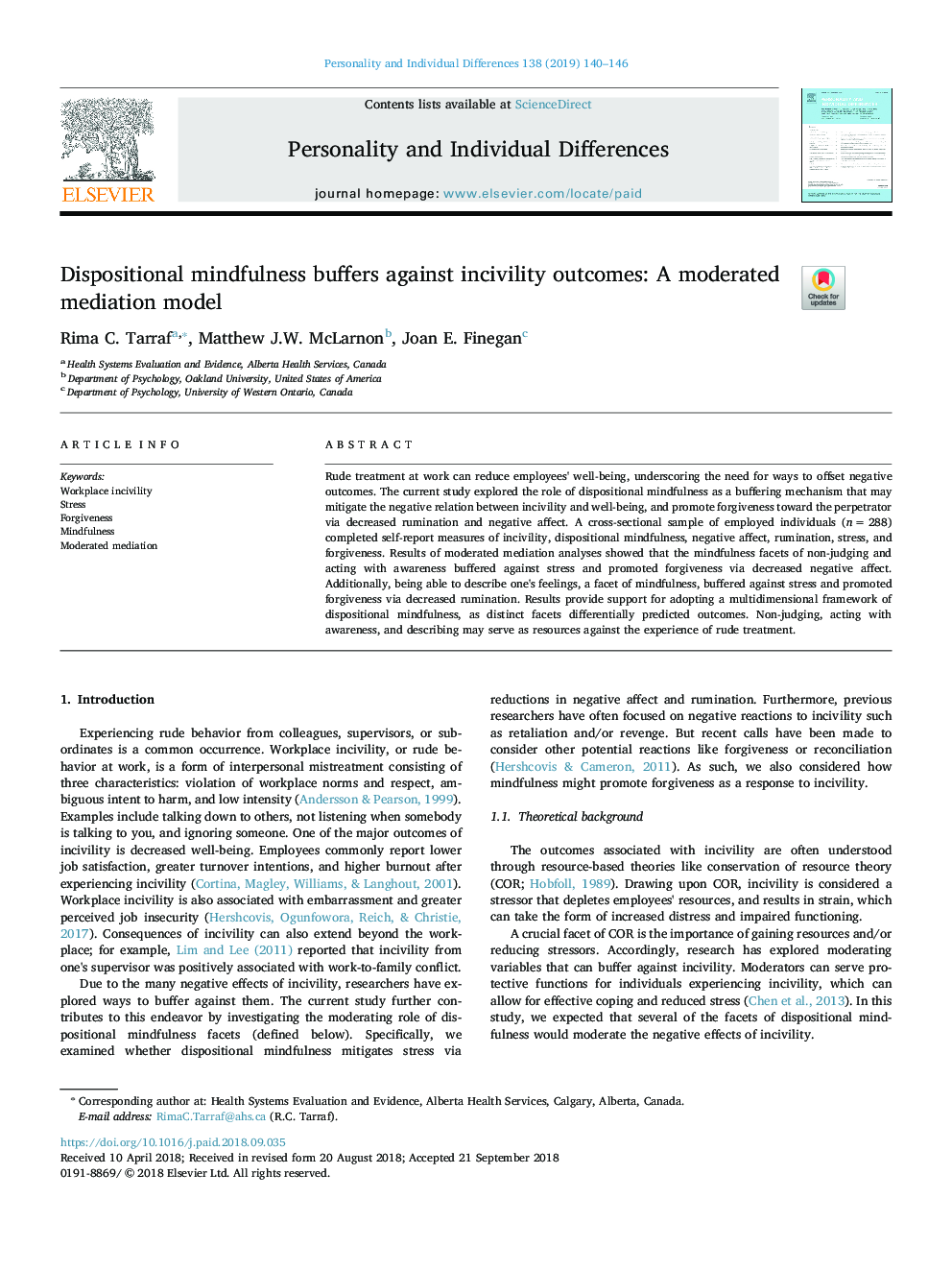| Article ID | Journal | Published Year | Pages | File Type |
|---|---|---|---|---|
| 11028793 | Personality and Individual Differences | 2019 | 7 Pages |
Abstract
Rude treatment at work can reduce employees' well-being, underscoring the need for ways to offset negative outcomes. The current study explored the role of dispositional mindfulness as a buffering mechanism that may mitigate the negative relation between incivility and well-being, and promote forgiveness toward the perpetrator via decreased rumination and negative affect. A cross-sectional sample of employed individuals (nâ¯=â¯288) completed self-report measures of incivility, dispositional mindfulness, negative affect, rumination, stress, and forgiveness. Results of moderated mediation analyses showed that the mindfulness facets of non-judging and acting with awareness buffered against stress and promoted forgiveness via decreased negative affect. Additionally, being able to describe one's feelings, a facet of mindfulness, buffered against stress and promoted forgiveness via decreased rumination. Results provide support for adopting a multidimensional framework of dispositional mindfulness, as distinct facets differentially predicted outcomes. Non-judging, acting with awareness, and describing may serve as resources against the experience of rude treatment.
Related Topics
Life Sciences
Neuroscience
Behavioral Neuroscience
Authors
Rima C. Tarraf, Matthew J.W. McLarnon, Joan E. Finegan,
